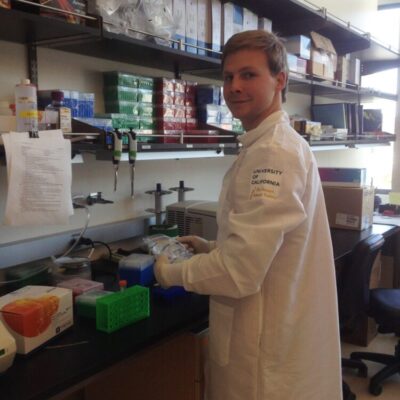Robert Potter Rose Hills
Macrophage metabolic changes due to AKT inhibition during Mycobacterium tuberculosis infection
AKT is a serine/threonine kinase that is critical in multiple signal transduction pathways that regulate cell growth, survival, and metabolism. Inhibition of AKT during Mtb infection of resting macrophages results in a decrease in Mtb burden. AKT may play a different role in IFN- activated macrophages, where it is required for full macrophage activation. AKT inhibition of IFN- activated macrophages leads to a decrease in RNS that may be due to changes in cellular metabolism. Aerobic glycolysis describes a cells preference for ATP derived from glycolysis rather than oxidative phosphorylation even in the presence of excess oxygen. We believe that this metabolism switch is also required for full macrophage clearance of intracellular Mtb. I will investigate connections between changes in cellular metabolism that occur as a result of AKT inhibition/IFN- activation and immune responses that are required for controlling M. tuberculosis infection, including the production of RNS, autophagy, and lysosomal maturation.
Message To Sponsor
The SURF-Independent award will allow me to spend my entire summer conducting research in preparation for an honors thesis during the 2014-15 school year. This fellowship therefore serves as an excellent capstone for my undergraduate education, as I am now able to integrate what I have learned in the class room and at the bench. The SURF program has taught me an incredible amount about working in an academic research environment. Without the Rose Hills Foundation and the SURF program, I would not be as passionate about a career in science!